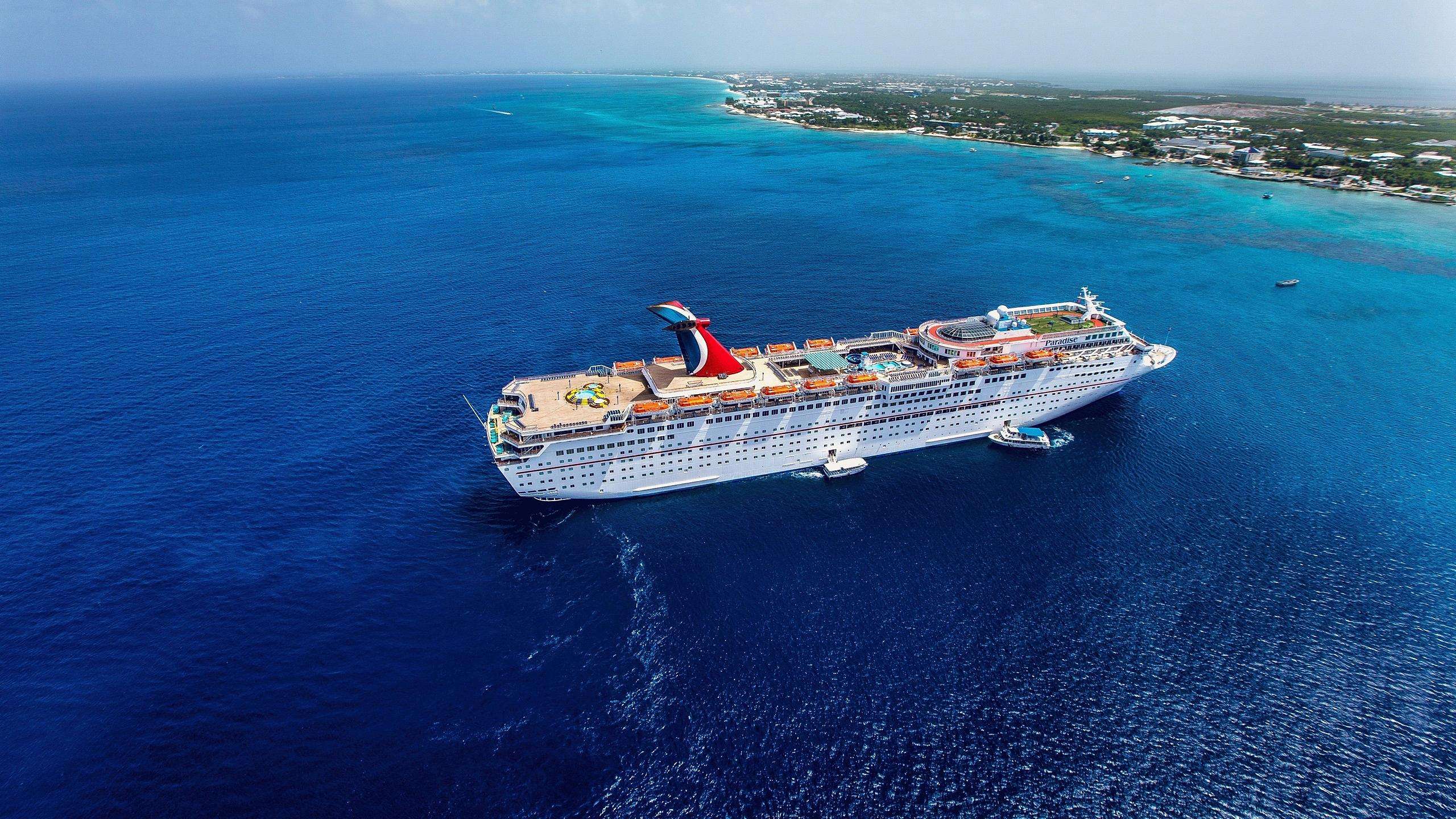Shipping business how to decide on what path to follow in the context of anti – globalization?

- Date: Mar 31, 2017
- Comments: no comments
- Categories: News
“Anti-globalization” trend focused on warming. However, the “anti-globalization” and the inherent “globalization” attribute of the shipping industry is bound to run counter to the shipping industry will go from here?
Since 2016, with the British off Europe, the United States President Trump took office at the beginning of the official announcement of withdrawal from the TPP, French election ups, “anti-globalization” trend focused on warming. However, the “anti-globalization” and the inherent “globalization” attribute of the shipping industry is bound to run counter to the shipping industry will go from here?
“Anti-globalization” wave struck
In 2016, whether it was the US general election, the British retreat or the failure of the Italian constitutional referendum, have cast a shadow over globalization. In 2017, the upcoming French general election, if the right-wing Le Pang was elected president, may once again burst the black swan incident, add a variable for globalization. This reversal is mainly due to the escalation of investment protectionism, the sluggish global multilateral mechanism, the fragmentation of various regional trade and investment agreements, and the immigration policy, investment policy and regulatory policy of the United States and Europe.
The big country can be either a major enabler of globalization or a dominant force in globalization. The current globalization is counterproductive, it should be said that the United States is the main promoter. The United States on the one hand in order to alleviate the contradictions between the domestic people and the elite, but also to avoid more favorable globalization of China. The relative decline in the income of the middle and lower income groups in the United States, as well as the increasing immigration risks and terrorist threats, have led to the public’s fear of neoliberal globalization and its governance policies. The Trump phenomenon is the dissatisfaction of the American people with elite and elite politics Of the concentrated reflection. China’s reform and opening up process, but also into the United States led the process of globalization, especially after China’s accession to the WTO, China’s economy into a comprehensive acceleration stage, as the beneficiaries of the multilateral system, the United States do not want to maintain the existing multilateral rules system, On their own more beneficial cross-regional trade agreements negotiations; on the other hand is to reshape the better to play their own advantages of globalization. The US-led TPP and TTIP negotiations aim to restrict and constrain a group of emerging market countries, including China, with high standards of rules that can take advantage of their own advantages. Trump became president of the United States, announced to withdraw from the TPP as the representative of the high standards of trade rules negotiations, but it followed the high standards of the concept will not be abandoned. On the contrary, some new agreements may be more conducive to the United States the way to “constructive re-definition”, the future of the new system of the right to shape the battle is still the focus of the big game. It can be seen that the current globalization is the United States and other Western powers to promote the globalization of its active contraction, is based on the process of globalization, the distribution of dissatisfaction with the distribution of the United States is also dominated by global governance and weak performance.
From the “days do not fall” empire era, to the United States era, and then to the era of crowded times, the achievements of the former also created the latter “globalization”, really in the world with the world drifting away? No matter how the answer One of the undeniable facts is that an anti-globalization wave seems to be raging, and from the benefit of the most global Europe and the United States to spread to the world.
The impact on the shipping industry did not imagine big
Britain’s departure from Europe and Trump the New Deal’s core are a sign of “anti-globalization” trend of the arrival. What are the effects of reverse globalization on international trade and international shipping?
Shanghai Maritime University Professor Xu Jianhua that the trend of deepening globalization, the first impact on the shipping industry is the demand for reduction. The procurement model moves from globalization to coastal and national. Whether it is transferred to the shore or the country, will certainly bring the cargo volume and shipping distance reduction, then the shipping demand will be reduced accordingly. For the container sector, the reduction in supply will lead to increased global carrier competition. On the other hand, the intensification of the trend of globalization will make the global container shipping industry governance mechanism challenges. The United States is from the national public interests, under its influence, the global shipping industry governance mechanism will be a corresponding change. Not from a global perspective, but from the national, national, regional perspective to consider these aspects of the interests. Container shipping industry rules are mainly global rules, the future may be more to establish a number of national, regional rules. However, the inverse of globalization on the US infrastructure construction may bring good. The development of transportation infrastructure in the United States is lagging behind, including the hardware level of the expressway and port terminals. The efficiency and intelligence of the terminal operations are 15 to 20 years behind the ports of Europe and Asia. Today, the United States proposed to strengthen domestic demand, Trump government intends to invest 1 trillion US dollars for infrastructure construction, ports and transport facilities is one of the most important beneficiaries. As a result, the United States, roads, railways, ports and other infrastructure can be greatly improved, international shipping will indirectly benefit.
Shanghai International Shipping Center, Zhang Yongfeng, director of the Department of Shipping that the impact of globalization on the shipping industry in general there are three aspects. First, the impact of the development of maritime trade between major powers. Now some of the major countries advocate the inverse of globalization, whether it is the bulk of the goods or container trade will bring some impact, such as trade between China and the United States, if you really realized that Trump said before the tariffs, will certainly affect the sea the amount. Therefore, reverse globalization will directly affect the maritime trade between major powers. The second aspect will increase the instability of the maritime market. The maritime industry has its own characteristics and laws when the market is stable, whether it is bulk or the container has their own characteristics, such as seasonal characteristics. Once the trend of globalization is deepening further, it may directly lead to some policy changes, such as tariffs, anti-dumping policies, these policies will lead to instability in the market. Third, the future of different economies on the existing international maritime laws, regulations, rules of the development trend will have some differences. Each country in the development process is not the same stage, the ship will also involve many aspects, there are standards, technology, norms, etc., all aspects of the requirements are not the same, in the trend of anti-globalization, the future in these areas The contradictions and differences will increase.
The trend toward globalization will have a negative impact on the shipping industry, which is affirmed by the majority of the industry. But the impact in the end how much? According to the reporter to understand that many people believe that the actual impact may not have imagined large. Ning Tao, director of the Center for Economic Policy and Development Strategy of the Ministry of Transport and Water Transport Research Institute, believes that since Trump took office too short, there will be a very big difference in the commitment and ruling reality of the previous campaign. Really become a trend, still can not see it. Britain’s departure from Europe, Trump’s political position, more of a global expression of dissatisfaction with globalization. Trump hopes to attract manufacturing to return to the United States, but if there is no advanced technology to do support, not to mention the real return, and the support of advanced technology support can not achieve the goal of increasing the employment of US blue-collar workers, to some extent, This policy has little effect on the shipping industry, but rather the impact of technological progress on the global division of labor will spread to trade and even shipping. Such as large data on the optimization of trade, artificial intelligence and robot replacement of simple processing, will change the comparative advantage of countries before. The upgrading of industrial structure will also lead to changes in trade items and regional distribution. Therefore, the shipping industry should pay more attention to the impact of the new technological revolution on trade, the impact of industrial upgrading and upgrading on the logistics industry.
Xu Kai, director of the Shanghai International Shipping Research Center, said that the shipping industry has a far-reaching significant turning point, the general sense and changes in the mode of transport has a great relationship, such as containerization changes, and the world economy, The impact of changes in international trade and globalization on the shipping industry is also important, but often not fundamental, as long as the world still has a wide range of unbalanced and stable population distribution. Trump’s policies are more likely to cause trade frictions, but the return of production requires the training cycle of professional labor, the US manufacturing industry will choose to return to the industry, even if the final return to the United States will be the local production capacity Bring more raw materials to the United States transport, and therefore will not have a direct impact on the total international trade, which is the most critical point. From this point, the impact of the intensification of the anti-globalization trend driven by the United States may not have been imagined.
To create a harmonious wisdom shipping
Europe and the United States as part of the developed countries trying to change the current global rules of the game, the short term will certainly have a certain impact on globalization. How the shipping industry in this wave of anti-globalization to overcome the difficulties, out of the trough, against the storm and the industry is the most concerned about the topic.
At present, despite the trend of deepening the trend of globalization, but most people believe that the trend of globalization is irresistible, the level of globalization of human welfare or more harm than good, any dissatisfaction and reverse action are the trend Dynamic behavior is temporary, and to strengthen the competitiveness of the shipping industry itself is even more important. In this regard, Zhang Yongfeng said that the shipping industry, the core is to improve their own competitiveness. For shipping companies, including the specific level of service, information technology, fine management level, cross-international operation level and so on. For products, competitive products, even if the trend of globalization in depth, the impact will be much smaller. If the product is less competitive, many competitors, then the buyer has more right to speak, may be in the tariff and other aspects of the restrictions on more. So to improve their own competitiveness, this is the most fundamental core of things. Xu Kai believes that the shipping industry to strengthen the competitiveness of the most critical or to enhance the quality of service in the shipping industry. From the general law of economics, when an industry overcapacity, vicious competition, such as the ship capacity oversupply, when the brand value, quality of service, cost control will be reflected in the value of China’s shipping industry is still widespread management of extensive, poor quality of service, low credibility of the problem. These shortcomings make the domestic shipping industry entry threshold is reduced, “If the owner to spend some money to buy a boat can do and shipping as well, then the industry is really sad.” Professor Xu Jianhua of Shanghai Maritime University believes that differentiated and specialized products are important issues that shipping companies should consider. A more prominent example is the Wanhai and Taiping shipping, their products have trans-Pacific routes, and their products are very unique. Although the size of the sea is far less than Maersk, but its profit margins are more than Maersk, because they identify their own market segments, do differentiated special products, it is the general route is not operating.
In addition to enhancing the competitiveness of the shipping industry itself, industry experts have also put forward other measures to cope with the trend of deepening globalization. Professor Xu Jianhua that the shipping industry but also timely capacity adjustment. In the face of the current new situation, for the major global carriers, 18,000 TEU large ships have been built, out of the container shipping industry’s mainstream market, and a wide range of applications and relatively high efficiency 14000TEU ship became Mainstream ship type. In addition, the inverse of globalization is likely to bring the proportion of feeder ships increased, the global carrier to adjust the capacity structure in time to increase the proportion of regional boats. As the demand for the shipping industry will be reduced under the influence of reverse globalization, the global carrier’s competition will intensify, and in these two contexts, further integration will be needed to reduce the number of global carriers and reduce the competing internal friction. Continue to integrate, so that the industry to achieve an oligopoly industry, so that the owner can produce a stronger voice. Therefore, this trend of centralization will continue to strengthen in 2017.
Zhang Yongfeng said that the great development of China’s shipping and our reform and opening up the road to globalization is inseparable from the road, China should also strengthen multilateral cooperation, especially with less developed countries and regions. With the “one by one” policy, there will be more and more projects involved, including the port investment, the layout of the future routes, which are conducive to resolve the negative impact of globalization. For the shipping industry, we have to better participate in global governance, by participating in the development of some of the global laws and regulations, rules to improve our right to speak. Only when we are more involved in the development of global rules will we be able to gain more rights and better reduce future frictions and prevent the negative impact of future globalization.
Although we are living in the external environment is constantly changing, shipping is always an important means as a regional connection. As the Shanghai International Shipping Center Director Zhenhong in the “third industrial revolution on the future development of transport,” the article said, shipping and the surrounding environment in harmony, to meet the individual needs, information highly integrated wisdom shipping Can change the status quo.







No Comments Yet.